What Is Asphalt Paving | Types of Asphalt Paving | What Does Asphalt Cost | Hot Mix, Warm Mix, and Cold Mix Asphalt
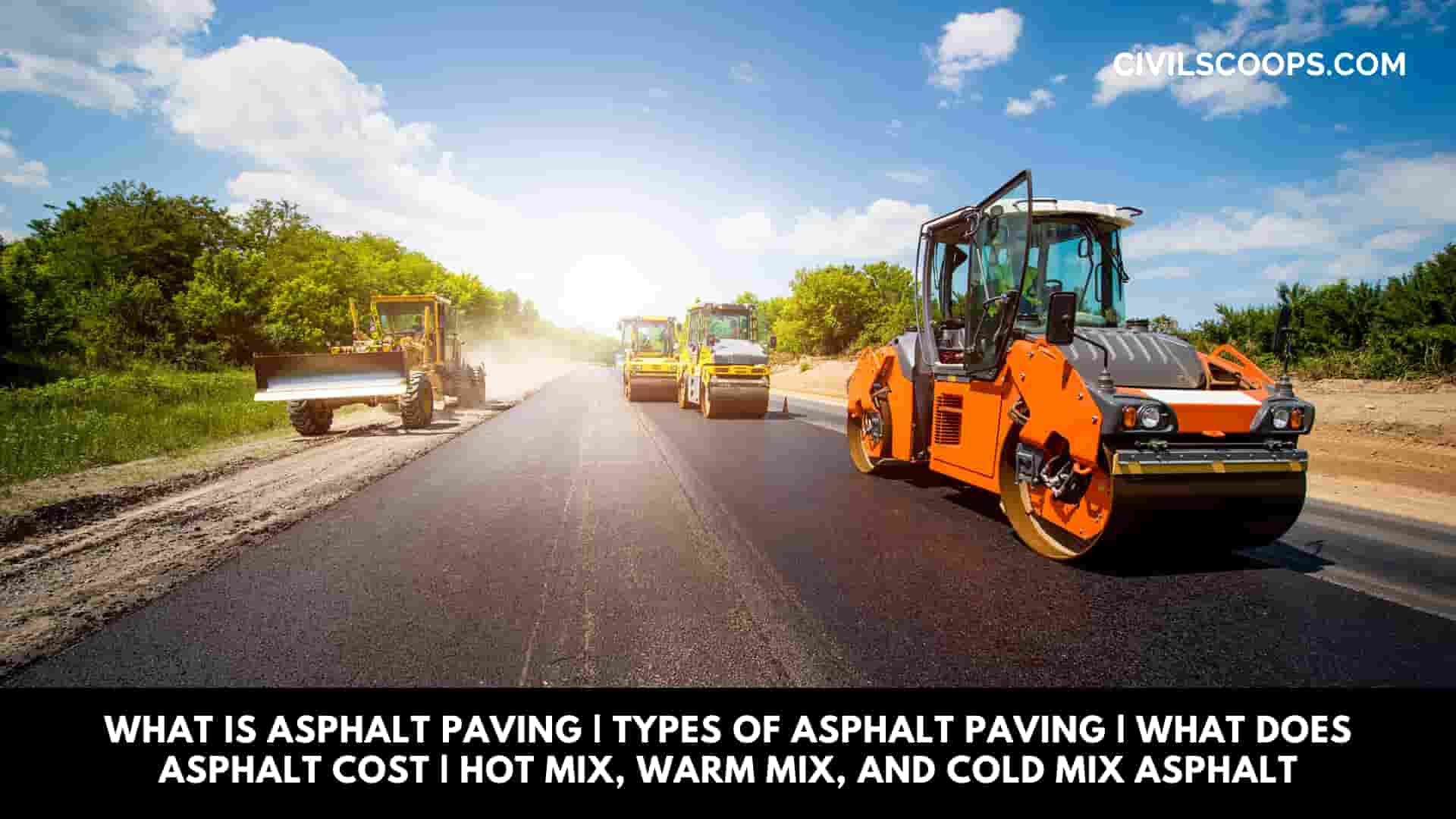
Table of Contents
Introduction of Asphalt Paving
Asphalt is also known as bitumen. Asphalt is a sticky, black, largely thick liquid or semi-solid form of petroleum. It may be planted in natural deposits or may be a refined product. Asphalt is produced in the factory by mixing fine beach, coarse beach, bitumen, clay, and sediment.
Asphalt is an admixture of summations, binder and padding. Asphalt is utilized for constructing and maintaining roads, parking areas, road tracks, anchorages, field runways, bike lanes, sidewalks and play and sports areas. Also, it’s laid down on-point to a decided position or consistency by a paving machine.
Definition of Asphalt Paving
Civil Engineering Estimation One of the most popular types of construction ever since its commencement is asphalt paving. A sub caste of asphalt is laid on top of an inversely thick clay base in this construction fashion.
Advantages of this form of road construction are that the pavement produces, its relatively low cost compared to other accoutrements and that it’s fairly easy to repair and maintain as well.
Still, asphalt is significantly lower durable and strong than utmost other pavements and isn’t stylish for the terrain.
What Is Asphalt Road?
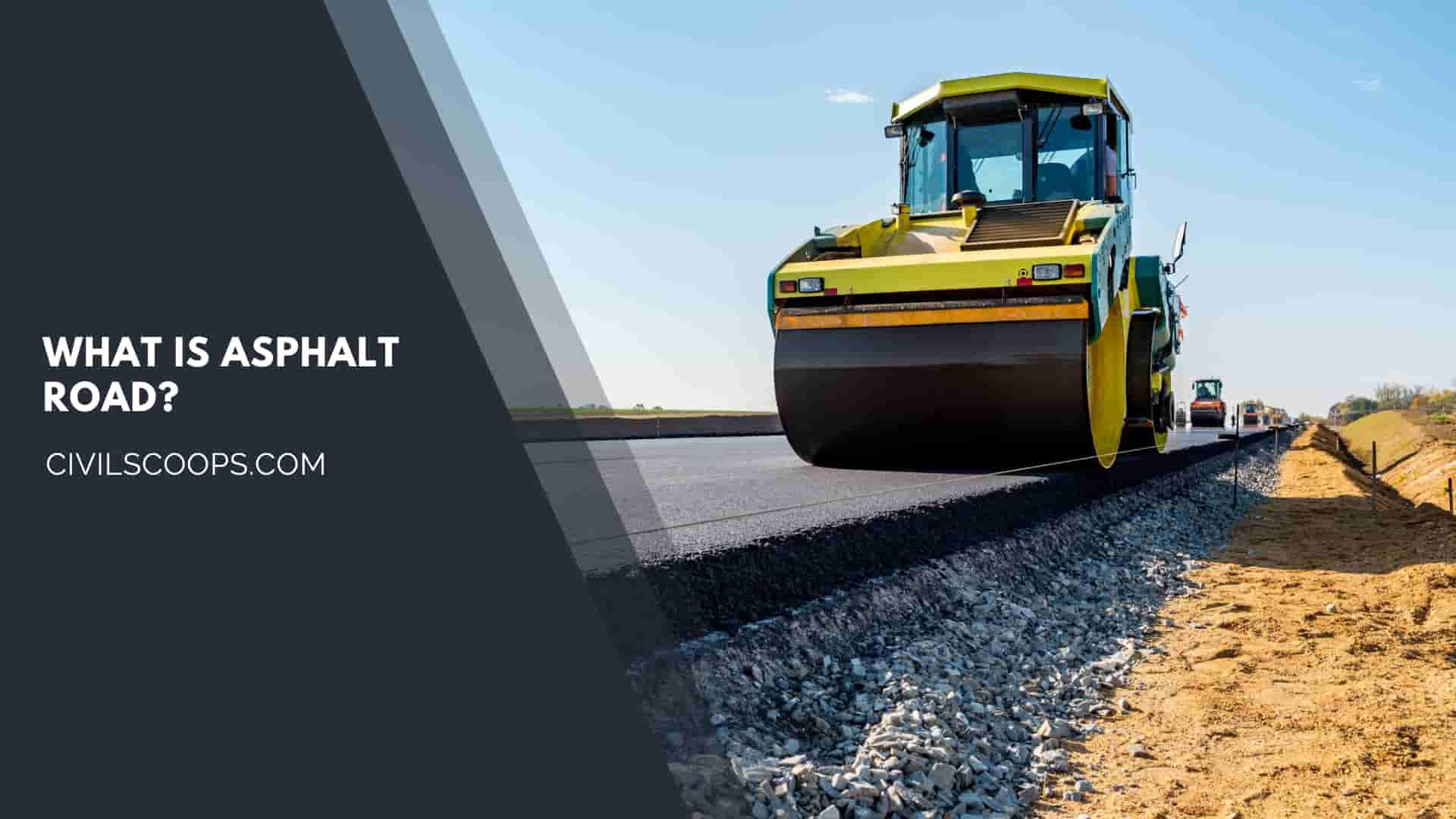
Asphalt road shells have numerous benefits similar to cost-effectiveness, noise pollution, and comfort reduction. Using asphalt accoutrements in road construction and conservation can lessen the benefits for all road druggies and the terrain.
Asphalt roads may be safe, smooth and durable. It can be erected constructed to last indefinitely. The inflexibility and new technologies are making asphalt the only sustainable pavement choice.
The advantages of this form of road construction are that the asphalt pavement produces fairly little noise. It’s relatively low cost compared to other accoutrements, and asphalt road is easy to repair and maintain.
What Is Asphalt Paving?
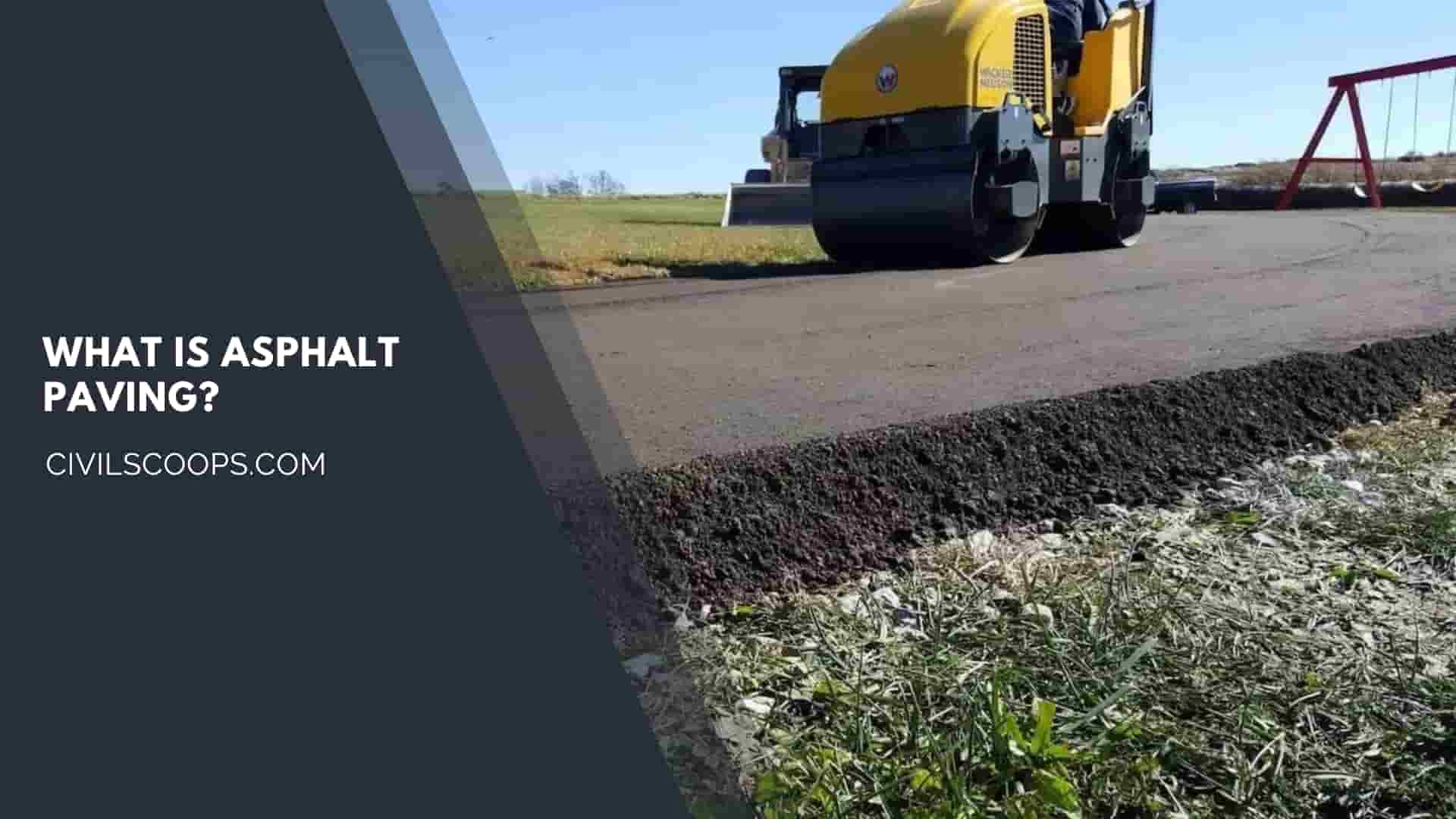
A subcaste of asphalt is laid on top of an inversely thick clay base in this construction fashion. Civil Engineering Estimation One of the most popular types of construction ever since its commencement is asphalt paving.
Asphalt, also known as bitumen, is a sticky, black, largely thick liquid or semi-solid form of petroleum. It may be planted in natural deposits or a refined product and is codified as a pitch.
Definition Asphalt Driveway
The main factors of the blacktop used on asphalt driveways are gemstone, beach, and asphalt cement, a navigator-suchlike petroleum product. A new driveway starts with a 4-to 8- inch caste of compacted coarse padding for a solid, well-draining base.
It gets outgunned with 2 to 3 fresh, hot asphalt elevations, which snappily gets compacted by a heavy rolling machine. New asphalt driveways generally can be driven on incontinently after installation. By discrepancy, poured concrete driveways must cure for seven days before being used.
What Is Asphalt Driveway?
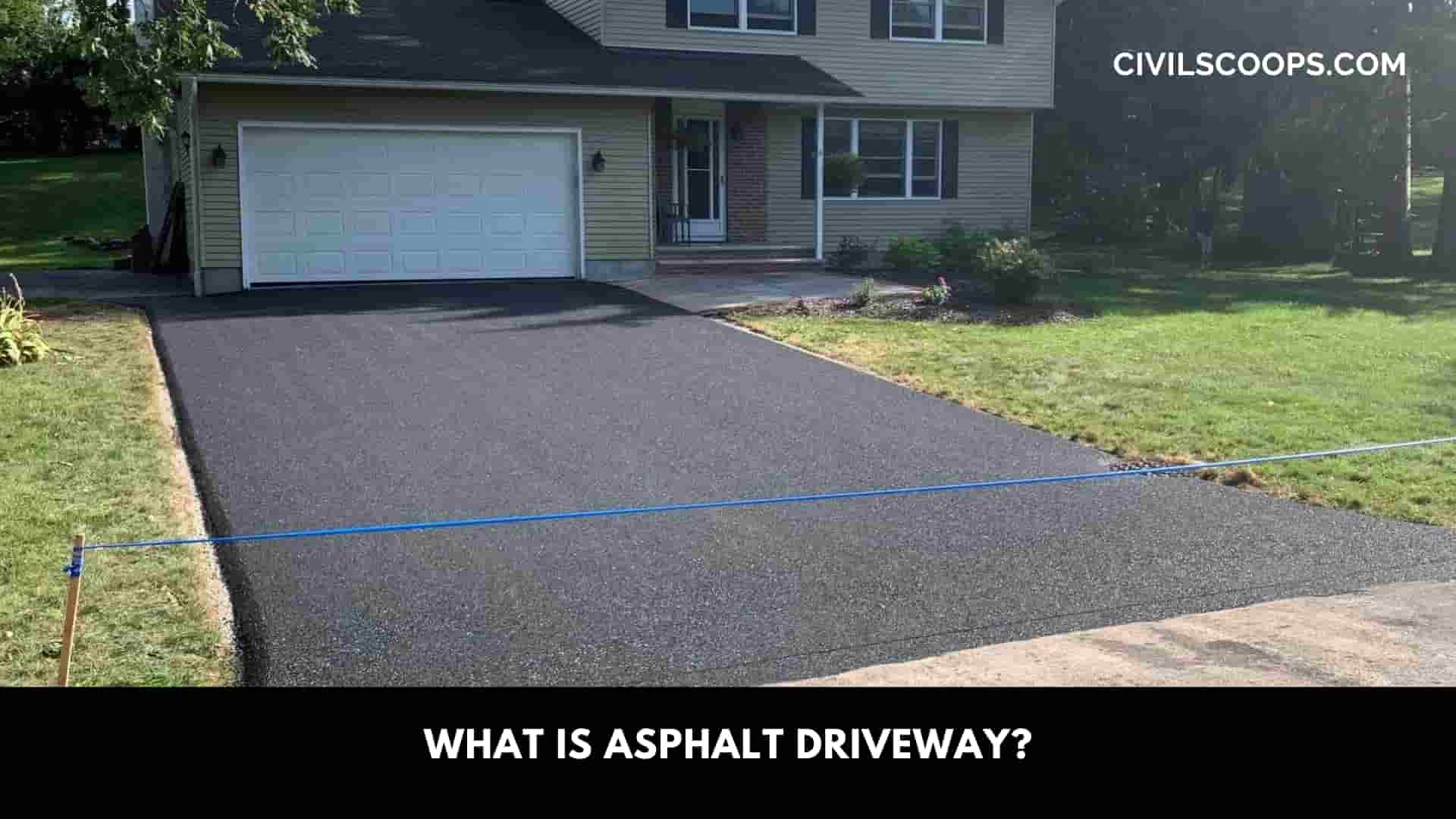
Asphalt driveway material is analogous to what you see road crews laying on roads. Also called hot mix or hot mix asphalt, this type of driveway is a total of gravestone and beach, along with slurry of asphalt, a navigator-suchlike material made from petroleum.
The asphalt is hutted to over 300 F to run it. Asphalt contractors have to work with it presto before the blend solidifies. To get the most life and stylish appearance from an asphalt driveway, clean the driveway at least twice a time.
Use a stiff broom and strong sock spray to remove all dirt and debris. Seal- fleece the asphalt every two to five times to ensure a seductive, water-resistant face.
Types of Asphalt Paving
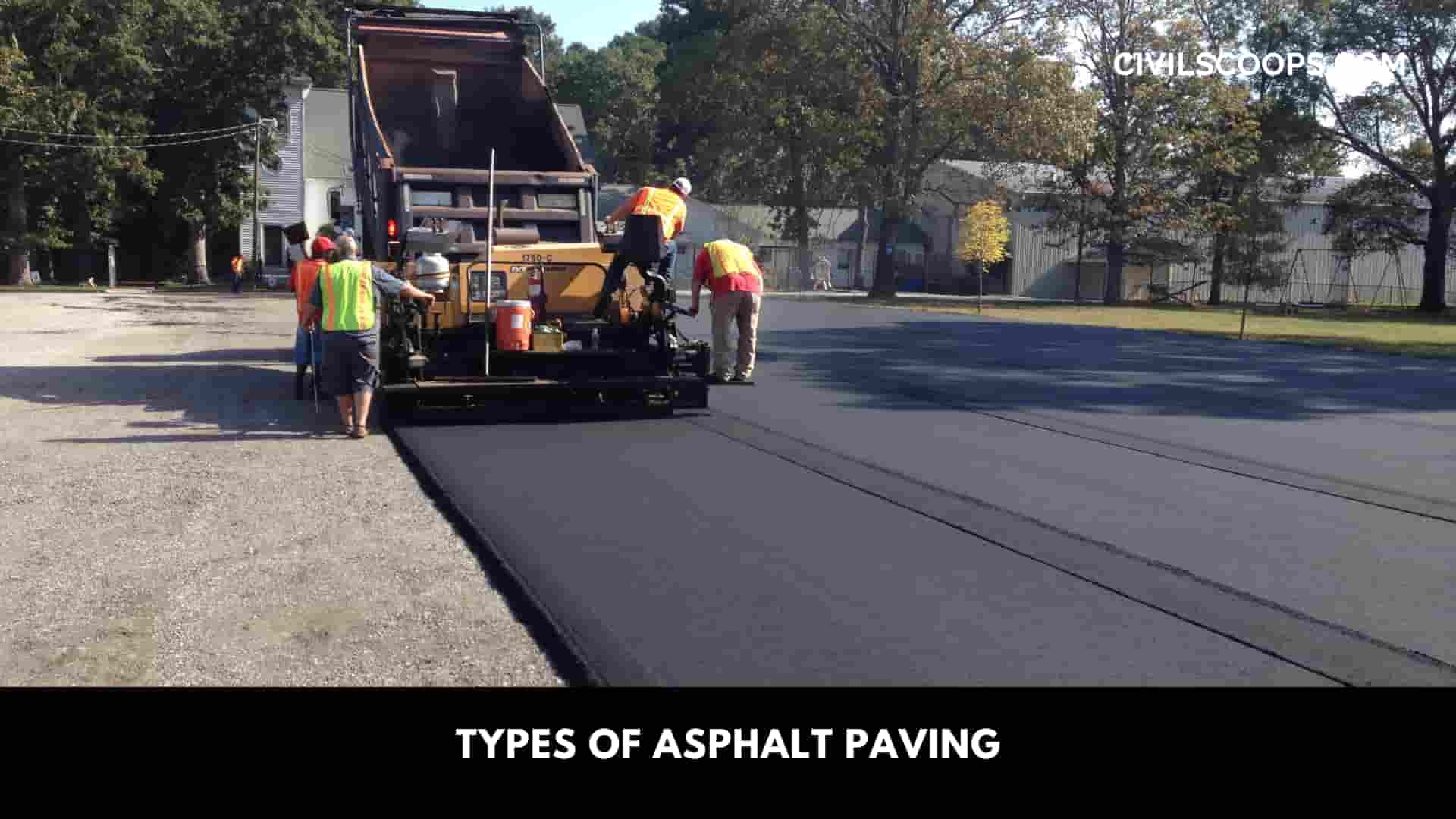
Following are the different types of asphalt paving.
- Pervious Asphalt
- Quiet pavement
- Perpetual pavement
- Hot mix asphalt
- Warm mix asphalt
- Cold mix asphalt
1. Pervious Asphalt
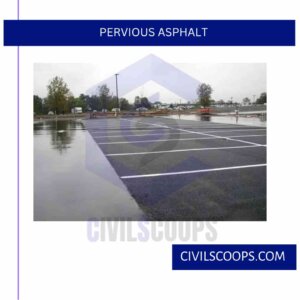
Pervious asphalt is frequently used to pave parking lots because it reduces standing water after heavy rainfall. This style of asphalt is ideal for rough spots, like the Puget Sound area. When storm water pools on an asphalt face, it can spawn blights, similar to potholes, dangerous for vehicles and climbers.
Pervious asphalt combats potholes and other blights by giving standing water a place to go. A sub caste of porous asphalt is placed over a force of open-canted gravestone.
Storm water peregrination through the pavement into the gravestone bed and ultimately infiltrates the soil. When duly maintained, pervious asphalt can last 20 times or further.
Also Read: Best Concrete Mix for Driveway Repair
2. Quiet Pavement

Quiet pavement is a type of asphalt that relieves business noise. Quiet paving a noisy road with a gravestone-matrix asphalt or open-grade disunion has been shown to reduce noise situations by over seven rattles.
According to the Asphalt Pavement Alliance, diminishing noise situations by just three rattles is original to doubling the distance between a sound source.
Open-graded and pervious asphalts are common quiet pavement fusions because they dissipate the sound energy created by the tire reaching the asphalt face.
Finely graded asphalt fusions also significantly reduce noise situations because they minimize contact between the pavement and tire.
3. Perpetual Pavement
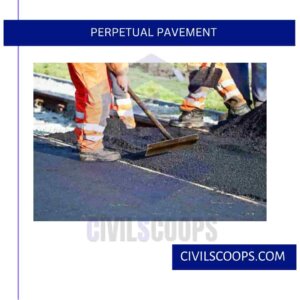
Perpetual pavement uses multiple durable layers to give drivers a long- continuing, smooth and safe face. This asphalt paving style starts with the operation of a base subcaste that’s strong, flexible and resistant to base cracks caused by business pressure.
The mid-layer provides structure, and the top subcaste is a pattern-resistant face that gives the asphalt its continuity. Perpetual pavement is cooperative conservation and restorative care. Perpetual pavement can last at least 50 times.
4. Hot Mix Asphalt
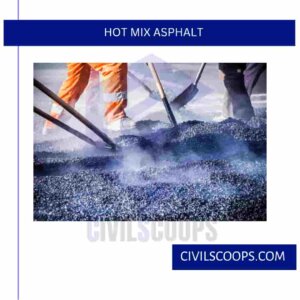
Hot mix asphalt refers to the operating system rather than the type of asphalt. It’s one of the most generally used composites in the assiduity because it’s durable and easy to apply.
Hot mix asphalt is reused at scorching temperatures of 270 to 325 degrees Fahrenheit, so it remains malleable enough to circulate across the grade.
When the admixture dries, it becomes hard as a gemstone. There are several types of hot mix pavement. Thick Graded-Lower passable due to high viscosity.
Stone Matrix-Further durable due to increased asphalt content, binder and filaments. Open- Graded-Further passable, used to produce previous fusions.
5. Warm Mix Asphalt
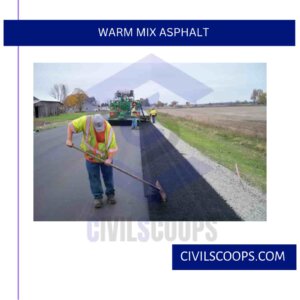
Warm mix asphalt applied at temperatures 50 to 100 degrees cooler than hot blend asphalt. It reduces energy consumption and hothouse feasts during the manufacturing and mixing process.
Other benefits include an extended paving season, increased product, the capability to incorporate reclaimed asphalt pavement (RAP) and bettered long-term.
6. Cold Mix Asphalt
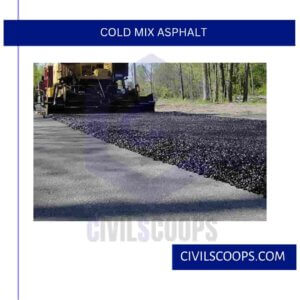
Cold mix asphalt is generally reserved for lower systems like repairing potholes, mileage cuts and patches on rural roads. The cold mix isn’t endless, so high-use shells are not recommended.
Two benefits of the cold blend are that it can be mixed on-point using just cleaner and water and applied during downtime.
This is helpful if a form is demanded on the road outside of paving season and there’s no hot blend factory hard. A cold mix that’s been applied rightly and is duly maintained should last up to a time.
What Does Asphalt Cost?
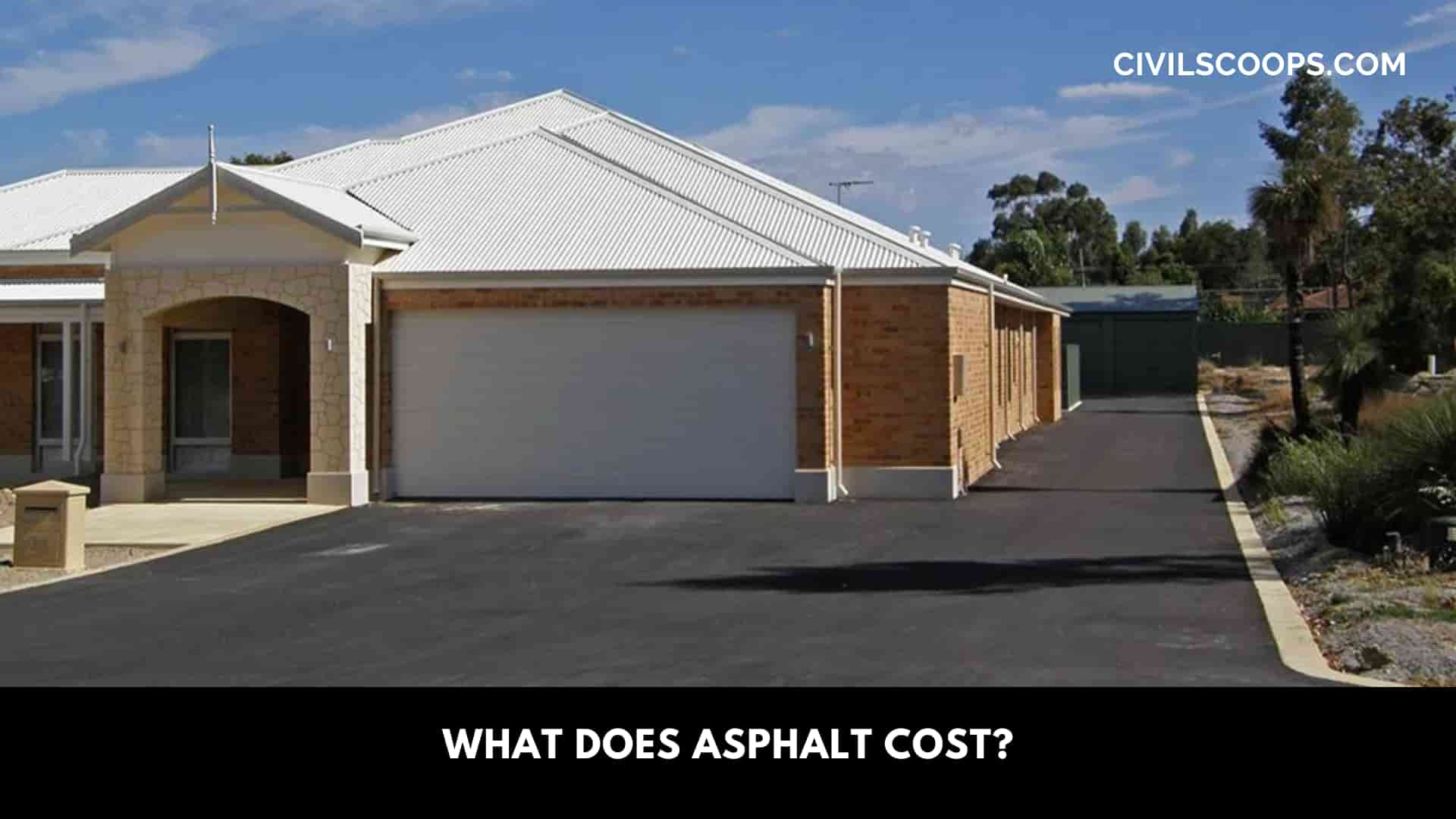
The asphalt price depends on our position, the quality of the asphalt we want to buy, and the current price of canvas. As mentioned before, blacktop costs are lower than regular asphalt concrete because blacktop uses lower bitumen in the blend.
To determine the total asphalt cost for our design, we must multiply the total asphalt weight needed by the cost per weight of the asphalt are copping. Calculate the total asphalt cost by multiplying the needed weight by the price of the asphalt per unit weight.
Total asphalt cost = weight × asphalt cost per weight
Asphalt Driveway Cost
Asphalt driveways are common in temperate and international climates. The material’s colour and continuity can stand up to harsh rainfall. An asphalt driveway is also less precious than a concrete driveway and is generally easier to maintain than clay.
Asphalt paving offers an accessible and safe driving or walking face with minimum keep corresponded to other driveway options. Since this job requires a lot of detailed outfits and heavy labour, it’s stylish done by a professional.
Conclusion of Asphalt Paving
Civil Engineering Estimation One of the most popular types of construction ever since its commencement is asphalt paving. The inflexibility and new technologies are making asphalt the only sustainable pavement choice. To get the most life and stylish appearance from an asphalt driveway, clean the driveway at least twice a time.
[su_box title=”FAQ” style=”default” box_color=”#333333″ title_color=”#FFFFFF” radius=”3″ class=”” id=””]
Asphalt Paving
Asphalt pavement refers to any paved road surfaced with asphalt. Hot Mix Asphalt (HMA) is a combination of approximately 95% stone, sand, or gravel bound together by asphalt cement, a product of crude oil.
Asphalt Driveway
Well, asphalt concrete is a blend of asphaltic cement mixed with grit or sand which delivers a long-lasting and hard-wearing driveway. These driveways are way more expensive as well as harder to repair than the asphalt or tarmac. Also, Asphalt concrete gets damaged more easily by fluctuating temperatures.
Bituminous Pavement
Bituminous concrete layer is a mixture of aggregates continuously graded from maximum size to minimum sizes (typically less than 25mm to 0.075mm aggregates). Sufficient bitumen is added to the mix so that the compacted concrete mix effectively impervious and has acceptable dissipative and elastic properties.
What Type of Asphalt Is Best for Driveways?
Hot mix asphalt
Hot mix asphalt is the most commonly used type of asphalt for residential driveways. It’s made up of aggregate and asphalt cement, heated and combined to form the final product. The asphalt is poured at the paving site, where a compactor presses it into shape.
What Type of Driveway Sealer Is Best?
If you’re sealing an asphalt driveway, use a latex-based sealer. Avoid oil-based sealers because they will likely crack over time. Siloxane and acrylic sealants work well with concrete driveways. It’s best to avoid high-gloss, which could make the driveway surface slippery.
Types of Asphalt Driveways
- Stone-Matrix Asphalt.
- Perpetual Pavement.
- Porous Asphalt.
- Quiet Pavement.
- Thin Asphalt Overlay.
Types of Driveway Paving
- Asphalt
- Concrete
- Gravel
- Pavers
- Brick
- Cobblestone
Pervious Asphalt Pavement
Pervious pavement is designed to accept precipitation only and is typically thicker than traditional con- crete to support the same loads. Pervious asphalt consists of coarse stone aggregate and asphalt binder, with very little fine aggregate. Water percolates through the small voids left in the fin- ished asphalt.
What Is Asphalt Paving?
Asphalt paving is a general term used to describe the application of hot asphalt to a driveway or parking lot surface. You may also hear this term used to describe the process of creating a new driveway or a method to repair existing asphalt pavement.
Permeable Asphalt
Permeable paving surfaces are made of either a porous material that enables stormwater to flow through it or nonporous blocks spaced so that water can flow between the gaps. Permeable paving can also include a variety of surfacing techniques for roads, parking lots, and pedestrian walkways.
Pervious Asphalt
Permeable asphalt, also known as porous asphalt or permeable pavement, is a type of asphalt surface designed to allow water to pass through it. Traditional asphalt surfaces are impermeable, meaning water cannot penetrate the surface and instead runs off into stormwater drains or nearby water bodies, potentially causing issues with flooding and water pollution.
Quiet Asphalt Pavement
Quieter pavement is a new concept for the construction or rehabilitation of roadway surfaces intended to reduce the impacts that tire/pavement noise has on the highway environment.
Asphalt Road
It is a binder mixed with an aggregate creating asphalt cement that binds the stone, sand, and gravel, resulting in the pavement for our roads and highways. A small percentage of asphalt is used in waterproofing, sealing, and insulation products.
What Is Pavement?
Pavement is a hard surface that’s covered in concrete or asphalt, like a road or a driveway. If you wipe out on your bike and land on the pavement, you may end up with skinned knees or scraped elbows.
What Is Pavement Made Of?
Asphalt pavements are made by combining coarse and fine aggregate and recycled asphalt pavement (RAP) to a particular recipe and then adding asphalt cement as the black sticky glue that holds the pavement together.
What Should a New Asphalt Driveway Look Like?
It’s common for new asphalt to look black, but it may also have a variable finish depending on where it’s been put. Different-sized stones and sand are strewn around the surface to create the various sections.
What Is the Cost of Asphalt?
Asphalt is usually priced by square foot. The cost per ton is $40 to $80 and per square foot is $0.75 to $2.00. The cost is determined by the size of rock in the asphalt, volume ordered, delivery cost, and the location of the work being performed.
What Is Asphalt Pavement Made Of?
Asphalt is a sustainable paving solution made from a mixture of aggregates, binder, and filler. Aggregates are processed mineral materials such as crushed rock, sand, gravel, slags, or various recycled materials.
What Does Asphalt Cost?
The cost of asphalt is around $100 to $200 per ton. A ton covers between 30 and 80 square feet, depending on the depth of the driveway. The minimum asphalt depth for a driveway is 2 inches, and homeowners often go with a depth of up to 6 inches to enhance stability and longevity.
What Is Warm Mix Asphalt?
Warm Mix Asphalt (WMA) is the generic term for a variety of technologies that enable Hot Mix Asphalt (HMA) pavement material to be produced, placed and compacted at lower temperatures without compromising quality or performance. It is a proven technology that can: Reduce paving costs. Extend the paving season.
What Is Cold Mix Asphalt?
Cold mix asphalt is a material that is made up of a combination of emulsified or cutback asphalts, aggregate, and water. It does not require heating and can be applied to the surface straight from the bag without the use of heavy equipment. This kind of asphalt can be used for cold patch repair projects.
How to Use Cold Mix Asphalt?
It’s important to note that cold mix asphalt is not a permanent solution and may not be suitable for large-scale paving projects. For major road construction or larger areas, hot mix asphalt (HMA) is the standard choice. Cold mix asphalt is best used for temporary repairs and quick fixes. If you have a significant paving project, consider consulting with a professional asphalt contractor to determine the best approach and materials for your specific needs.
How to Apply Cold Mix Asphalt?
- Prepare the area by cleaning it.
- Optionally moisten the area.
- Pour and spread the cold mix asphalt.
- Compact the material.
- Feather the edges for a smooth transition.
- Allow time to cure.
- Regularly maintain and repair as needed.
[/su_box]
[su_note note_color=”#F2F2F2 ” text_color=”#333333″ radius=”3″ class=”” id=””]
Like this post? Share it with your friends!
Suggested Read –
- Concrete Construction Tools for Construction Sites
- Construction Technology | Types of Construction Technology You Will Use in the Future
- What Is Roof Replacement | What Is Roof Repair | Difference Between Roofing Repair and Replacement
- What Is Mansard Roof | Mansard Roof Replacement Cost | Advantages and Disadvantages of Mansard Roof
- What Is Concrete Screed | Concrete Screed Specifications | Characteristics of Concrete Screed | Advantages & Disadvantages of Concrete Screed
[/su_note]
Originally posted 2023-07-25 10:17:25.
